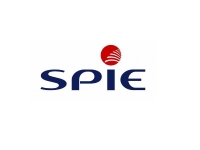Lifestyle
REGARDING COP21, EUROPEANS EXPECT A PRAGMATIC ECOLOGICAL APPROACH
RALLYING AROUND ENERGY EFFICIENCY

(Source: SPIE)
As France prepares to host the United Nations climate change conference in Paris (COP 21) in December, SPIE Group, the European leader in multi-technical services in the areas of energy and communications, has published a European survey of the general public's awareness and perception of energy efficiency and COP21.
Public awareness of COP21 naturally varies from country to country: 78% of French people say they have heard of it, compared with 59% of Germans, 45% of Belgians, 37% of the Dutch and 34% of the British.
Public awareness of COP21 naturally varies from country to country: 78% of French people say they have heard of it, compared with 59% of Germans, 45% of Belgians, 37% of the Dutch and 34% of the British.
Of those Europeans, 50% of French people claim they know exactly what this conference is all about compared with 30% of Germans, 20% of Belgians, 26% of the Dutch and 19% of British people.
For the majority of Europeans, this is a major event, which will help generate joint impetus, mobilise countries on the topic of climate change, promote the dissemination of information on this subject and boost public awareness. Most people also say they are personally interested in this initiative. However, apart from in Belgium, only a minority think it will really change things and provide practical solutions.
For the majority of Europeans, this is a major event, which will help generate joint impetus, mobilise countries on the topic of climate change, promote the dissemination of information on this subject and boost public awareness. Most people also say they are personally interested in this initiative. However, apart from in Belgium, only a minority think it will really change things and provide practical solutions.
Most French people (68%), Belgians (68%) and Dutch (60%) say they have heard of energy efficiency. That is a fairly high level of awareness, even though only a minority of people in France and Belgium claim to know exactly what that entails (20% and 18%, respectively) and about one-third of people have never heard of energy efficiency in those countries.
Energy efficiency appears to be much better known in Germany (92% in total, 43% of whom actually claim to know exactly what it is all about) and, above all, in the United Kingdom (where the figures are 94% and precisely 70%, respectively).
Energy efficiency appears to be much better known in Germany (92% in total, 43% of whom actually claim to know exactly what it is all about) and, above all, in the United Kingdom (where the figures are 94% and precisely 70%, respectively).
Europeans spontaneously associate energy efficiency with insulation and, to a lesser extent, solar power, energy-efficient equipment and smart energy management systems. And when they are shown a list of items representing energy efficiency, the idea that it is a matter of preventing waste is the first thing mentioned by all Europeans, whether they be in France (52%), Germany (52%), Belgium (52%), the Netherlands (46%) or the UK (60%).
In all the participating countries, more than 8 out of 10 people say they are careful about reducing energy consumption in their homes: 85% in the Netherlands, 88% in the UK, 91% in Belgium and as many as 95% in France and Germany. In regards to public places, most Belgians and French say they are careful (71% and 69% respectively) whereas the other nationalities appear to be more circumspect (from 49% in the Netherlands to 55% in the UK).
In all the aforementioned countries, most people think that heating is too high in shops, particularly in France (67%), Germany (62%), and Belgium (60%) and to a less degree in the UK (54%) and the Netherlands (49%) - but that their homes are heated to the right temperature (78% of the Dutch, 70% of the French, 69% of Germans, 66% of Belgians and 56% of the British).
A vast majority of the individuals surveyed thought the ideal indoor temperature was above 19°C (64% in the UK, 68% in the Netherlands, 79% in Belgium and as many as 85% in Germany). To be even more specific, nearly one-third of Europeans (32%) thought the ideal heating temperature was 20°C and an average of 21% said 21°C. It was also noted that 21% of Germans and 15% of Belgians said 22°C was ideal.
While most Belgians (52%), Dutch (51%) and British (45%) consider that their countries are about average when it comes to progress on energy efficiency, the Germans believe that they are in the lead (52%) and the French think they are lagging behind (51%).
In all cases, individuals who think their country is lagging behind generally blame that situation on a lack of political will to make energy efficiency a priority: 84% in the UK, 86% in the Netherlands and as many as 91% in Belgium, 93% in Germany and 94% in France.
In all cases, individuals who think their country is lagging behind generally blame that situation on a lack of political will to make energy efficiency a priority: 84% in the UK, 86% in the Netherlands and as many as 91% in Belgium, 93% in Germany and 94% in France.
In all the respective countries, when participants are asked about which factors might encourage them to modify their behaviour in order to make savings, the most frequent answer is their "energy bills are too high" (from 85% in the Netherlands to 93% in Belgium). Then there is the opportunity to receive tax benefits, though that point was less often mentioned by the British (75%) than by other Europeans: 92% in Belgium, 90% in France, 89% in Germany and 81% in the Netherlands.
To cut energy consumption in buildings, Europeans talk about improving insulation - especially in France (62%) and Belgium (57%) but less so in the Netherlands (43%), installing energy saving systems - especially in the UK and Germany (both 53%) but less so in Belgium (44%), and raising user awareness - especially in the Netherlands (53%) but less so in the UK (41%).
....
Source : SPIE
Ruby BIRD
http://www.portfolio.uspa24.com/
Yasmina BEDDOU
http://www.yasmina-beddou.uspa24.com/
....
Source : SPIE
Ruby BIRD
http://www.portfolio.uspa24.com/
Yasmina BEDDOU
http://www.yasmina-beddou.uspa24.com/
Ruby Bird Yasmina Beddou Energy Savings Europeans United Nations Climate Change Conference Pragmatic Ecological Approach Local Authorities Individuals Making Savings People Technical Progress Paris United Nations Climate Change Conference
Liability for this article lies with the author, who also holds the copyright. Editorial content from USPA may be quoted on other websites as long as the quote comprises no more than 5% of the entire text, is marked as such and the source is named (via hyperlink).






